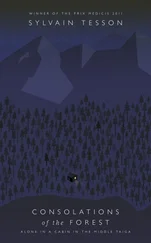7
At that moment it was very late in the previous evening in Paris, and the retired schoolteacher was back on the phone with the navy station on Guam. Laurent Moutier’s housekeeper had whispered to him that they really ought to try to get hold of the old man’s daughter. But the schoolteacher was getting nowhere. The duty lieutenant on Guam had no personal insight into the Pentagon’s plans for China, but Stan Reacher’s new posting was classified as secret, so no foreign citizen was going to hear a thing about it. Not from the navy. No sir. No way, no how.
Moutier heard the audible half of the back-and-forth from his bed. He could understand English a little. Enough to get by, and just enough to hear things between the lines. He knew exactly how the military worked. Like practically every other twentieth-century male human in Europe he had been in the service. He was already thirty years old when World War One broke out, but he volunteered immediately and survived all four years, Verdun and the Somme included, and he came out the other end with a chestful of medals and no scars longer than his middle finger, which was statistically the same thing as completely unscathed. On his day of demobilization a lugubrious one-armed, one-eyed brigadier wished him well and then added, apropos of nothing, ‘Mark my words, Moutier, a great war leaves a country with three armies: an army of cripples, an army of mourners, and an army of thieves.’
And Moutier found all three immediately, on his return to Paris. There were mourners everywhere. Mothers, wives, fiancées, sisters, old men. Someone said that if you gave every dead soldier a one-page obituary, just one lousy page to list all his hopes and dreams, then the resulting pile of paper would still stand taller than the Eiffel Tower itself.
Thieves were everywhere, some solo, some in mobs or gangs, some with a political tint. And Moutier saw cripples all day long, some in the natural course of events, but many more at work, because his furniture repair operation had been commandeered by the government and told to make wooden legs for the next ten years. Which Moutier did, out of parts of tables bought up cheap from bankrupt restaurants. It was entirely possible there were veterans in Paris stumping around on the same furniture they had once dined off.
The ten-year government contract expired a week before the Wall Street Crash, and the next ten years were hard, except that he met the woman who quickly became his wife, a beauty foolish enough to take on a battered forty-five-year-old wreck like him. And a year later they had their only child, a mop-haired girl they called Josephine, who had grown up and married a Marine from New Hampshire in America, and who was currently completely uncontactable, despite the vast array of technological innovations Moutier had witnessed in his lifetime, many of them invented by the Americans themselves.
8
Stan Reacher pulled his field cap low and walked away to work. A minute later Josie headed out shopping, with a big bag and a thin purse. Reacher sat on the kerb, waiting for the kid with the boil to come out to play. Joe stayed inside. But not for long. Thirty minutes later he came out with combed hair and a jacket. He said, ‘I’m going to take a walk.’
‘To the school?’ Reacher asked.
‘Least said, soonest mended.’
‘They’re not humiliating you. You’re humiliating yourself. How does scoring a hundred per cent make you feel good when you already asked what the questions were?’
‘It’s a matter of principle.’
‘Not my principle,’ Reacher said. ‘My principle is they set these things so average people can pass them, which gives me enough of a chance that I don’t feel I have to get my panties in a wad beforehand.’
‘You want people to think you’re average?’
‘I don’t care what people think.’
‘You know you have to wait here for the delivery, right?’
‘I’ll be here,’ Reacher said. ‘Unless the fat smelly kid comes out with so many friends I end up in the hospital.’
‘Nobody’s coming out with anybody. They all went to a ballgame. This morning, in a bus. I saw them. They’ll be gone all day.’
9
The telephone delivery arrived while Reacher was eating lunch. He had made himself a cheese sandwich and a pot of coffee and was halfway through both when the delivery guy knocked on the door. The guy unpacked the box himself and handed Reacher the phone. He said he had to keep the box. Apparently there was a shortage of boxes on the island.
The phone was a weird instrument. It was like no phone Reacher had seen before. He put it on the countertop next to the remains of his sandwich and looked at it from all angles. It was definitely foreign, and probably about thirty years old. From some beaten nation’s wartime warehouses, then. Mountains of stuff had been inherited. A hundred thousand typewriters here, a hundred thousand binoculars there. A hundred thousand telephones, rewired and reissued. At the right time, too. Turning tents and Quonset huts all over the world into permanent brick and stone buildings must have put a lot of pressure on a lot of people. Why wait for Bell Labs or GE when you can just back up a truck to a warehouse in Frankfurt?
Reacher found the jack on the kitchen wall and plugged in the phone and checked for dial tone. It was there. So he left the phone on the countertop and headed out to the beach.
10
It was a great beach. Better than most Reacher had seen. He took off his shirt and his shoes and took a long swim in warm blue water, and then he closed his eyes and lay in the sun until he was dry again. He opened his eyes and saw nothing but whiteout and glare from the sky. Then he blinked and turned his head and saw he was not alone. Fifteen feet away a girl was lying on a towel. She was in a one-piece bathing suit. She was maybe thirteen or fourteen. Not all grown up, but not a kid either. She had beads of water on her skin and her hair was slick and heavy.
Reacher stood up, all crusted with sand. He had no towel. He used his shirt to brush himself off, and then he shook it out and put it on. The girl turned her head and asked, ‘Where do you live?’
Reacher pointed.
‘Up the street,’ he said.
‘Would you let me walk back with you?’
‘Sure. Why?’
‘In case those boys are there.’
‘They’re not. They’re gone all day.’
‘They might come back early.’
‘Did they give you that toll road crap?’
She nodded. ‘I wouldn’t pay.’
‘What did they want?’
‘I don’t want to tell you.’
Reacher said nothing.
The girl asked, ‘What’s your name?’
Reacher said, ‘Reacher.’
‘Mine’s Helen.’
‘I’m pleased to meet you, Helen.’
‘How long have you been here?’
‘Since yesterday,’ Reacher said. ‘You?’
‘A week or so.’
‘Are you staying long?’
‘Looks like it. You?’
‘I’m not sure,’ Reacher said.
The girl stood up and shook out her towel. She was a slender thing, small but long-legged. She had nail polish on her toes. They walked off the sand together and into the long concrete street. It was deserted up ahead. Reacher asked, ‘Where’s your house?’
Helen said, ‘On the left, near the top.’
‘Mine’s on the right. We’re practically neighbours.’ Reacher walked her all the way, but her mom was home by then, so he wasn’t asked in. Helen smiled sweetly and said thanks and Reacher crossed the street to his own place, where he found hot still air and nobody home. So he just sat on the stoop and whiled away the time. Two hours later the three Marine NCOs came home on their motorbikes, followed by two more, then two more in cars. Thirty minutes after that a regular American school bus rolled in from the ballgame, and a crowd of neighbourhood kids spilled out and went inside their homes with nothing more than hard stares in Reacher’s direction. Reacher stared back just as hard, but he didn’t move. Partly because he hadn’t seen his target. Which was strange. He looked all around, once, twice, and by the time the diesel smoke cleared he was certain: the fat smelly kid with the boil had not been on the bus.
Читать дальше











